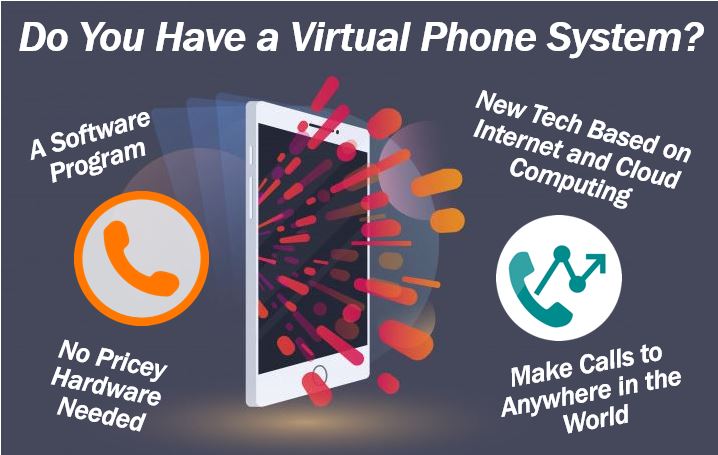Technology is changing the way every aspect of business is being done: this includes marketing, finance, product development and even customer service. Many business owners are looking towards the next big technological innovation to hit the market.
It is all too easy to become enchanted by the idea of augmented reality, or the potential of a 5G network, but these advancements, while exciting, can distract business owners from technologies that make the daily running of a company more streamlined and cost-effective.
According to the SendMyCall.com virtual phone system, a virtual phone system is a prime example on this, while it might not seem glamorous at first, it can bring huge benefits to productivity and a company’s cash flow.
What is a Virtual Phone System?

A virtual phone system, at a basic level, is a software that allows businesses to talk to their customers and colleagues without the need for expensive and complicated hardware. The system can be used to make calls to anywhere in the world from any internet-connected device.
The market for virtual phone systems has grown hugely in the last few years, with providers now catering to all of a business’ communication needs. Services like Grasshopper are cropping up, which promise to be more than just a VoIP service. These disruptive companies offer a new way of looking at virtual phone systems that can lead to increased functionality and reduced cost (read more about Grasshopper and how they do more in this full grasshopper review).
1. Value
There are many reasons why Forbes predicts 83 percent of enterprise workloads will be in the cloud by 2020. One of them is value. Virtual phone systems offer a much more cost-effective solution than the traditional business phone line, for many reasons. Firstly, they do not require the purchase of expensive hardware and the resulting installation costs.
Systems can be used on an employee’s mobile, a work computer, or even downloaded onto an app. Since these systems work over the internet, users will not experience that major bump up fee when making overseas phone calls, either. These systems also come with a variety of different plans to suit the needs of a business, whether they are established or just starting out.
2. Scalability

One of the great advantages of these phone systems is their ability to grow as a business evolves. Small businesses just starting out could opt for a plan that includes just a call service, leaving the option to add integrated email, chat, video, or messaging services later, as a business becomes more aware of their customers’ preferred mode of communication.
3. Flexibility
The rise of globalization and the internet means that business hours are no longer confined to the traditional 9 to 5. In our current climate, it really has never been more important to be able to communicate at any time of the day or night.
Companies offering applications as a part of their virtual phone systems make it easier than ever to communicate with employees, no matter where they are in the world. These applications can be downloaded onto a mobile device or desktop and allow users to access all functions from their at-home devices in a safe and secure manner.
Interesting related article: “What does Telecommunications mean?“

